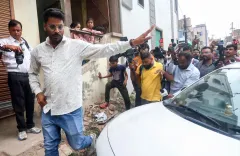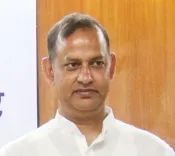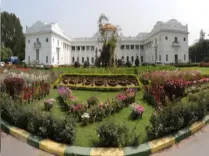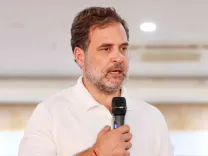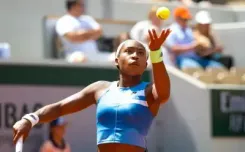Has PM Modi Strengthened BRICS and Gained Global Respect?
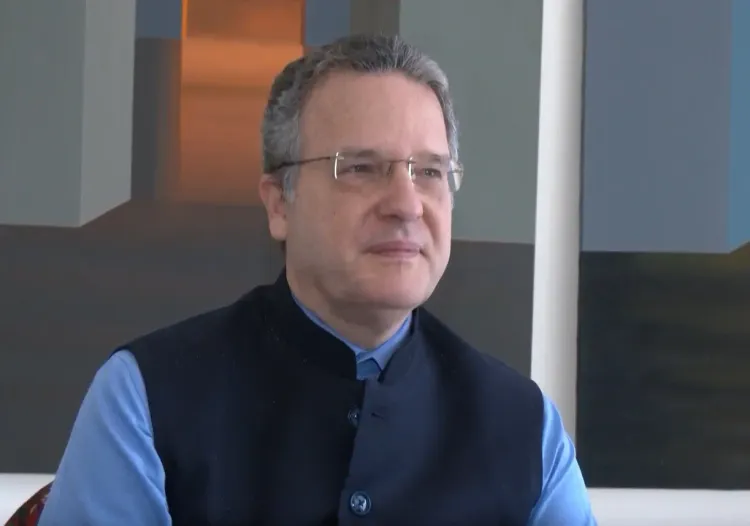
Synopsis
Key Takeaways
- Brazil prioritizes reforming global governance and climate financing.
- Dual participation in G7 enhances Brazil's influence.
- Consensus on Middle East issues is crucial for BRICS.
- IBSA strengthens the Global South narrative.
- Counter-terrorism strategies are integrated into BRICS discussions.
New Delhi, June 19 (NationPress) In an exclusive interview with IANS, Brazil's Ambassador to India, Kenneth Felix Haczynski da Nobrega, elaborates on Brazil's key objectives leading up to the upcoming BRICS Summit at the Museum of Modern Art in Rio de Janeiro.
As global tensions intensify and the alliance expands, the Ambassador addresses Brazil's dual engagement with the G7, the changing dynamics in the Middle East, the push for reforms in the UN Security Council, and the wider role of forums like IBSA. He also shares insights on Prime Minister Narendra Modi's rising prominence within BRICS and anticipated outcomes from the forthcoming summit.
Excerpts:
IANS: What are Brazil's main priorities under its leadership of BRICS?
Kenneth Felix Haczynski da Nobrega: The Brazilian presidency emphasizes six critical areas: reforming global governance, financing for climate change, global health, artificial intelligence, economic stability, and finance. These priorities illustrate our goal to enhance the functioning of BRICS. However, it is vital to note that BRICS remains an informal grouping, hence institutionalization cannot be strictly defined.
IANS: Brazil's participation in G7 Summits is notable. How significant is this dual involvement?
Kenneth Felix Haczynski da Nobrega: The G7's outreach to leaders from the Global South is not a recent phenomenon—it traces back to the early 2000s. It's a recognition that the G7 must engage with emerging powers to ensure their discussions remain impactful.
IANS: With rising tensions in the Middle East impacting one of the BRICS members, how will this be addressed during the summit?
Kenneth Felix Haczynski da Nobrega: This is a recent development and the situation is continuously evolving. BRICS operates on consensus—this is our guiding principle. We believe we can arrive at a consensus that reflects our collective commitment to international law and inclusive negotiations.
IANS: Is consensus achievable within BRICS regarding UN Security Council reforms, especially with new members bringing diverse priorities?
Kenneth Felix Haczynski da Nobrega: The mutual support for the three original BRICS members not on the Security Council is vital. Yet, we acknowledge that new members bring their own interests to the discussion. It is not a deadlock regarding the idea of including other Global South nations as permanent members. We are optimistic about reaching a consensus.
IANS: What can you share about the participation of partner countries in the upcoming summit?
Kenneth Felix Haczynski da Nobrega: BRICS has a tradition of inviting outreach nations, and this year we will host established partners such as Cuba, Bolivia, Nigeria, Uganda, Belarus, Vietnam, Malaysia, Thailand, Uzbekistan, and Kazakhstan. Each partner will participate in at least one dedicated session.
IANS: What do you anticipate as the key outcomes of this BRICS summit?
Kenneth Felix Haczynski da Nobrega: Alongside the traditional joint leaders' statement, we will have two specific declarations—one focused on climate change financing and the other on governance of artificial intelligence. These declarations will demonstrate that the expanded BRICS can forge significant agreements on pressing global issues. Climate change is particularly pertinent as we are chairing COP30 later this year, and Brazil has been advocating for deeper discussions on climate financing.
IANS: Will issues like terrorism be addressed despite the six main priorities?
Kenneth Felix Haczynski da Nobrega: Certainly, the selection of six areas does not exclude pressing issues such as the fight against terrorism. BRICS conducts over 100 meetings annually, including high-level discussions involving National Security Advisors and an anti-terrorism working group. This critical issue has also been addressed by foreign ministers during their meetings.
IANS: How effective was the recent visit of an Indian parliamentary delegation to Brazil?
Kenneth Felix Haczynski da Nobrega: The visit was quite fruitful, as they effectively communicated Indian concerns regarding terrorism to high-ranking officials, including a significant meeting with the Brazilian Vice President. Following the visit, President Lula conveyed his condolences to Prime Minister Modi, and Brazil condemned the terrorist attack publicly.
IANS: How do you view IBSA's role in the broader Global South narrative?
Kenneth Felix Haczynski da Nobrega: IBSA—comprising India, Brazil, and South Africa—unites three of the largest democracies from the Global South. Conversations among these democracies differ significantly as they share not only electoral systems but also a democratic ethos, distinguishing them from nations that have opted for alternative developmental paths.
IANS: How would you evaluate Prime Minister Narendra Modi’s role on the global stage, particularly in BRICS?
Kenneth Felix Haczynski da Nobrega: Prime Minister Modi has strengthened BRICS leadership and garnered global respect—not only in the Global South but across the globe. His contributions to BRICS discussions are immensely valuable, bringing authority and rationality to the table.

